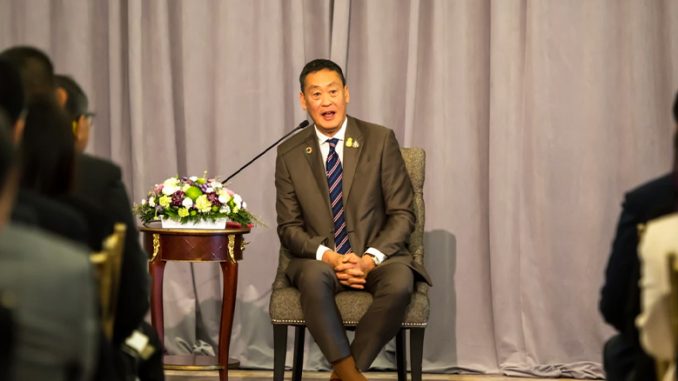
In the first 100 days of Srettha Thavisin’s administration, Thailand has witnessed a dynamic period marked by a series of ambitious policy initiatives and strategic efforts to address pressing national and international challenges. PM Srettha assumed office with a vision for a more prosperous and inclusive Thailand, pledging to tackle critical issues, foster economic growth, and enhance the well-being of the nation’s citizens.
This report aims to provide a comprehensive overview of the key achievements, challenges encountered, and the direction set forth by the government during the initial 100 days in office. From economic to social developments, Srettha’s leadership has sought to lay the foundation for the return of the Shinawatra clan.
Security Issues
The Srettha government in contrast to the two previous governments is not taking a strong security-based approach to social and political issues. It is segmenting security back to the traditional confines of border, southern insurgency and external national security threats. That said with the violence in Gaza there has been an uptick in violence with insurgents setting of IEDs and having gun battles with police prior to disappearing back into the jungles of Songkhla province. There have also been protests by Southern Muslims who were bussed into Bangkok from the South to protest in front of the Israeli embassy. The slow burning insurgency in the South will continue burning as the Puea Thai led government is letting the Ministry of Defense through the Southern Border Provinces Administrative Centre (SBPAC) and Internal Security Operations Command (ISOC) take the lead in security matters.
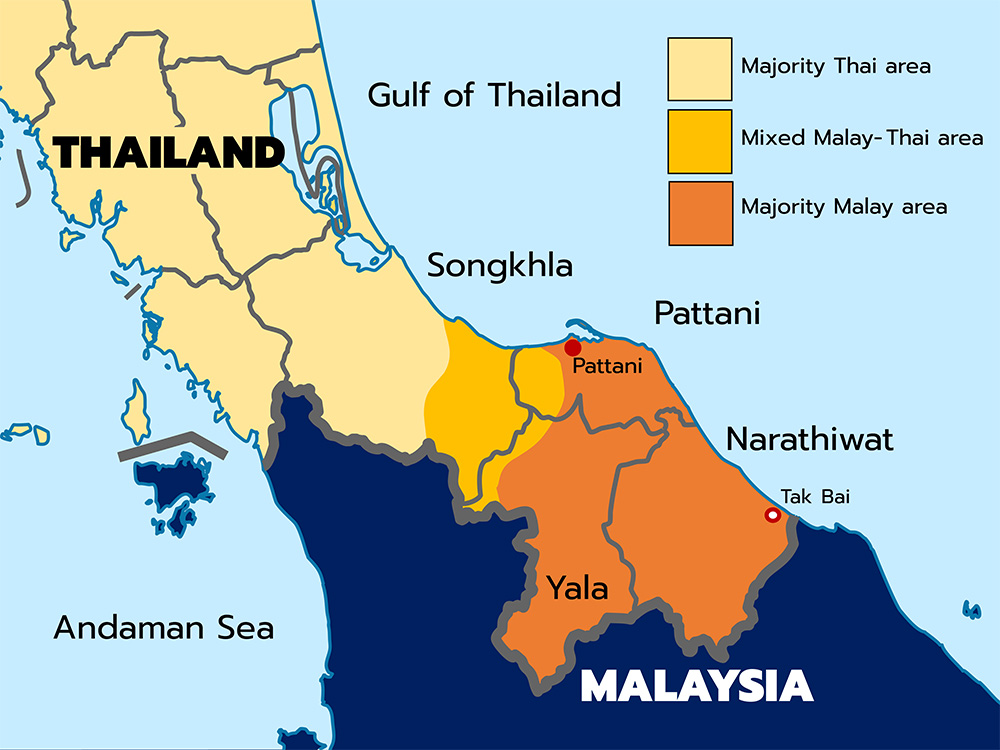
Foreign and Economic Policy Issues
Srettha has undertaken 5 trips to ASEAN members to signal a strong policy shift towards Thailand’s immediate neighbors as well as trips to Thailand’s strategic partners, China and the United States. The first trip to Cambodia was to shore up relations with Phnom Penh and expand border trade. It is no coincidence that the first phone call to congratulate Srettha’s came from Cambodia’s young Prime Minister Hun Manet. The bonds between Hun Sen and Thaksin are deep and Srettha will benefit from this in spades. Among other ASEAN destinations was Brunei where Thailand has strong agricultural and economic interests, Malaysia, Singapore and Laos. The later three hold very important security, investment and future connectivity interests for Bangkok and the reinvigoration of these relationships will help support the government’s economic policies.
The situation in Myanmar is of grave concern to the current government as the generals in Naypyidaw continue suffering humiliating military defeats to the Myanmar National Democratic Alliance Army (MNDAA), Ta’ang National Liberation Army and the Arakan Army. The ethnic resistance groups have overrun over 200 military bases and captured thousands of Tatmadaw soldiers. Needless to say, morale in the Tatmadaw is low as the losses continue to pile up. The Srettha government is fearful of state implosion and collapse on Thailand’s western border and is shifting its foreign policy towards an ASEAN approach whereas the previous government of General Prayut deliberately undermined ASEAN’s 5-point plan. This policy shift will be signaled in the upcoming ASEAN Summit in Jakarta. It remains to be seen if a ‘regional tipping point’ can be reached by having all 5 original ASEAN members having a common position towards Myanmar. Certainly, having Thailand return to the fold of the ASEAN mainstream rather than being a rouge member will have an important impact.
Trips to the United States in September produced numerous meetings with business investors in New York on the sidelines of the UNGA 78 session and followed up on in during the recent APEC Summit in mid-November. Important in the New York trip was the explicit reference to Thailand shifting back to multilateralism and more balance in its relations with the major powers. This is seen with a push to the Ministry of Commerce to get the Thai-EU FTA on track whilst reviving the traditional relationship with America that has been on life support for nearly a decade.
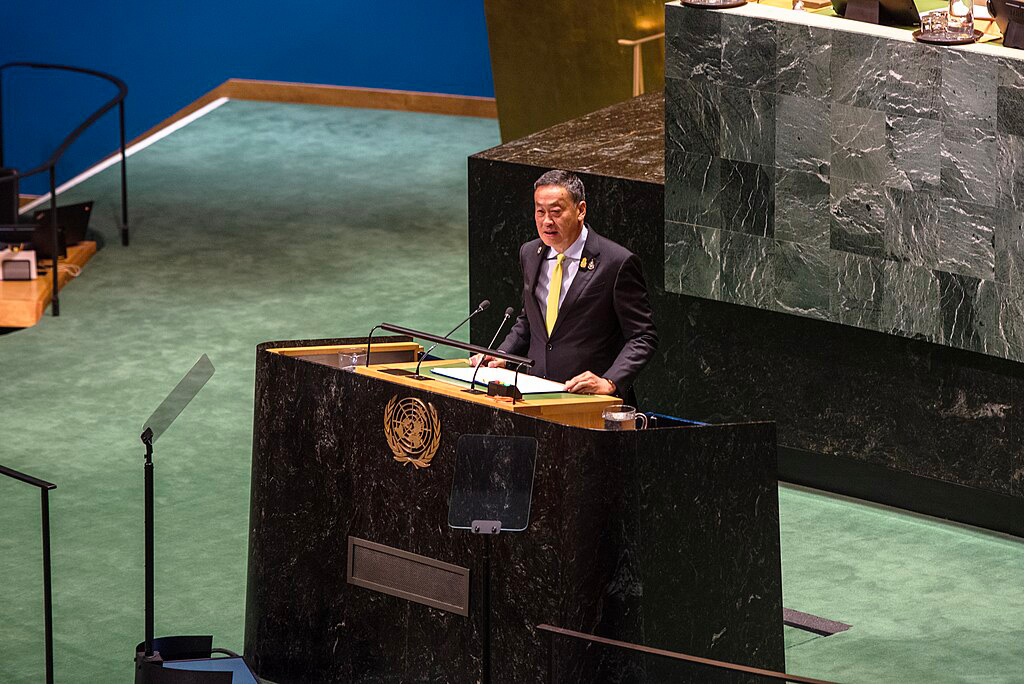
During the 2023 Asia Pacific Economic Cooperation (APEC) Economic Leaders Week in San Francisco, Thai Prime Minister Srettha, who also serves as the finance minister, managed a busy schedule that included meetings with business leaders, heads of state, and the expat Thai community. In his address at the APEC CEO Summit, Srettha conveyed that Thailand is back in business and open to collaboration with both existing and new partners, whether from the public or private sector, to drive economic development. The government’s goals include increasing economic growth, enhancing competitiveness, and positioning Thailand as a prominent destination for trade and investment. Key themes such as sustainability, technology and innovation, and trade and investment were emphasized, with Srettha urging international investors to consider Thailand as an attractive investment opportunity. Upon his return, it was revealed that the Prime Minister had successfully negotiated deals with approximately 15 major companies for potential investments in Thailand. Notable among these companies are Tesla, HP, Google, Microsoft, Amazon Web Services (AWS), Walmart, and others.
The Tesla deal is of particular interest given the fact that Thailand’s automotive market has become a key focus for Chinese manufacturers, surpassing a million units in both sales and exports. It is not only a crucial destination for complete vehicle exports but also an attractive location for Chinese automakers to establish offshore plants. In the first half of 2023, Chinese brands achieved significant growth, with cumulative sales reaching 37,000 units, a robust 78.7% increase compared to the same period the previous year. This surge amounts to an additional 16,300 cars. Furthermore, Chinese electric vehicle (EV) manufacturers are actively considering investments exceeding $1.44 billion in Thailand’s EV production. This interest is fueled by the government’s promotion of investments, aiming to boost the popularity of electric vehicles in Thailand, the second-largest car market in ASEAN. The country has witnessed a substantial increase in EV registrations, with 31,000 EVs registered in the first half of 2023, tripling the total for the entire year of 2022. Notable Chinese companies, such as GSC Aion New Energy Automobile and Svolt Energy Technology, have committed significant investments in Thailand’s EV and battery production. The Thai government’s proactive support for the EV industry, including incentives for global investors, has attracted major Chinese players like Great Wall Motor, BYD Co., Chongqing Changan Automobile, GAC Aion, and Hozon New Energy Automobile to invest in or announce plans for investment in Thailand.

Concrete investment pledges were secured from Google, Microsoft, and AWS, all agreeing to establish data centers in Thailand. These investments are expected to last up to 10 years and could surpass $5 billion in value. Most recently the PM announced an additional deal with TESLA involving an EV production facility worth an additional $5 billion. The PM also spoke with Open AI which is planning to set up research centers in Phuket and Chiang Mai. Lastly, Prime Minister Srettha presented the southern Land Bridge trade route as an alternative to the congested Malacca Strait, projecting the creation of 280,000 jobs and a 5.5% annual boost to the Thai GDP.
The plan to essentially ‘appropriate’ the Songkran water festival as a purely ‘Thai cultural festival’ is an interesting policy. The plan is to make the Songkran water festival a full month-long celebration and differentiate the celebrations over Thailand’s 77 provinces. The ‘soft power’ initiative here if implemented correctly may pay off handsomely for the Thai economy in increased tourists and unique experiences never seen previously on such a large scale.
Socio-Economic Issues
An important policy platform for Puea Thai was the increased cost of living, felt by all Thais in their monthly electricity bills and the need to bring energy costs down. Thirteen days after taking office the Thai Cabinet approved a new electricity tariff of 3.99 Baht, down from 4.45 Baht. This will see an ease in electricity prices over the short term. The drop in energy prices in the last quarter of 2023 will be erased as the Fuel Tariff (used to generate electricity) will rise in January from 3.78 Baht per unit currently to 4.68 Baht per unit rate for January to April. The respite of high monthly energy bills will be short lived and costs will rise according to international energy prices. The structural problem of Thailand’s private sector oligopoly and long-term contracts with Thai state will continue to hamper bringing inflation under control. The Puea Thai pledge for 20 Baht public transportation has not materialized as analysts predicted, but overall inflation is down from over 6% in 2022 to 1.5% currently.
Recent adjustments in the cabinet aim to lower power and diesel fees, but lasting change necessitates modifications to the energy price framework. It appears that the government must frequently step in, and The Federation of Thai Industries has strongly criticized the Energy Regulatory Commission (ERC) for acting as the sole agency responsible for setting national electricity prices every four months. Despite the government’s commitment to promoting clean energy initiatives, such as the implementation of floating solar cells capable of generating over 10,000 megawatts and the endorsement of electric vehicles (EVs) from China, including the establishment of a TESLA EV production facility, the concern remains about the affordability of electricity prices. Thailand has sought to find a delicate equilibrium between state and market mechanisms, considering the interests of both consumers and producers. However, this balance seemingly requires consumers to bear a share of regulated price increases during periods of elevated inflation. Overall, given that the new tariff rate of 3.99 baht per kilowatt-hour (unit) replaces 4.45 baht a unit, applicable between September and December this year, the PM did fulfill his promise, at least for now.
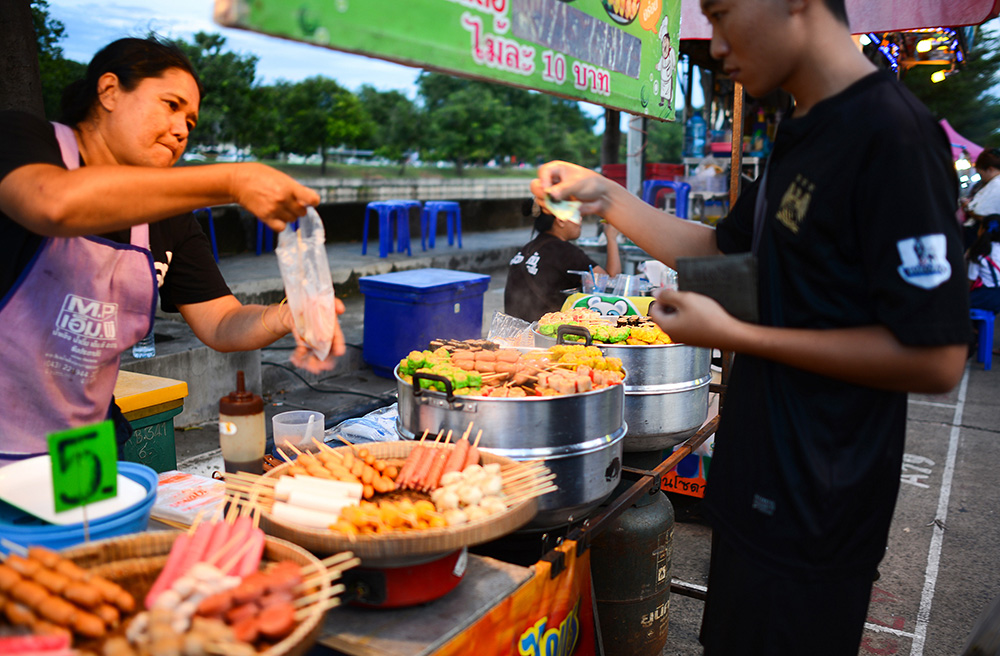
On September 26 the Cabinet approved 33 billion Baht ($908 million) for debt relief to farmers. The suspension of debt, both principal and interest took effect October 1st and will positively effect over 2.5 million farmers and their families giving them breathing space and open credit lines for those who have kept up with interest payments. This is critically important as some 2/3 of agricultural homes were in debt. This debt is a major cause of sluggish economic growth in Thailand’s rural areas.
The Bank of Thailand has stated that the economy is expected to grow between 2.5% and 3% in 2023. This represents a downward revision of 0.7 percentage points from previous forecasts, attributed to a more rapid decline in global demand than anticipated. The main catalysts for growth will continue to be the recovery of the tourism sector and increased private consumption. This is the key rationale behind initiatives such as the distribution of Digital Wallets.

Much touted Digital Wallet
Puea Thai’s flagship ‘digital wallet’ economic policy which will see the distribution of 10,000 Baht to all citizens over 16 years of age is progressing in fits. There is a lack of consensus on the geographic spatial limits for money usage and questions over the technological capacity for blockchain to work with the level of capacity expected. More importantly the PM does not appear to grasp the basics of the policy. In a recent meeting with the Governor of the Bank of Thailand, BoT chief economist and legal head, the PM was advised that there would be a short spike to GDP growth which would decline within 6 months, the need to find a suitable security to raise money for the consumption based borrowing and legal gap in defining this as ‘crisis borrowing’. The lack of understanding (we need to specify his lack of understanding before this sentence) stems from the PM being poorly briefed due to his overconfidence and is alarming officials in key economic ministries. Having to be told that ‘you can’t just make 50,000 million Baht out of nowhere, with nothing to back it up’ does not bode well. The wisdom of this policy remains to be seen.
Diplomacy
On October 7th, gunmen affiliated with Hamas in Gaza carried out an attack on Israel, resulting in the tragic death of 39 Thai nationals and the abduction of 32 Thai laborers. Before the conflict, approximately 30,000 Thai laborers were employed in Israel’s agriculture sector, constituting one of the largest migrant worker groups in the country. Following the attack, the Thai Prime Minister expressed strong condemnation through a tweet, affirming support for Israel. Since the tragic events of October 7 Thailand has managed to secure the release of 14 Thais from Hamas. This was undertaken through the lead of the Thai National Security Council and Thailand’s partners in the OIC, namely Malaysia, Iran, Egypt and Qatar during intense negotiations with Hamas in Doha. The excellent relations Thailand has with its OIC partners was leveraged to get collective pressure to release the Thai hostages. The Srettha government is looking for quick wins and this was an unexpected but very big win for the young government.
Also in October, Prime Minister Srettha Thavisin attended the 10th-anniversary celebration of China’s Belt and Road Initiative (BRI) in Beijing. During his four-day visit, he addressed a forum organized by the Thai Board of Investment in front of potential Chinese investors.
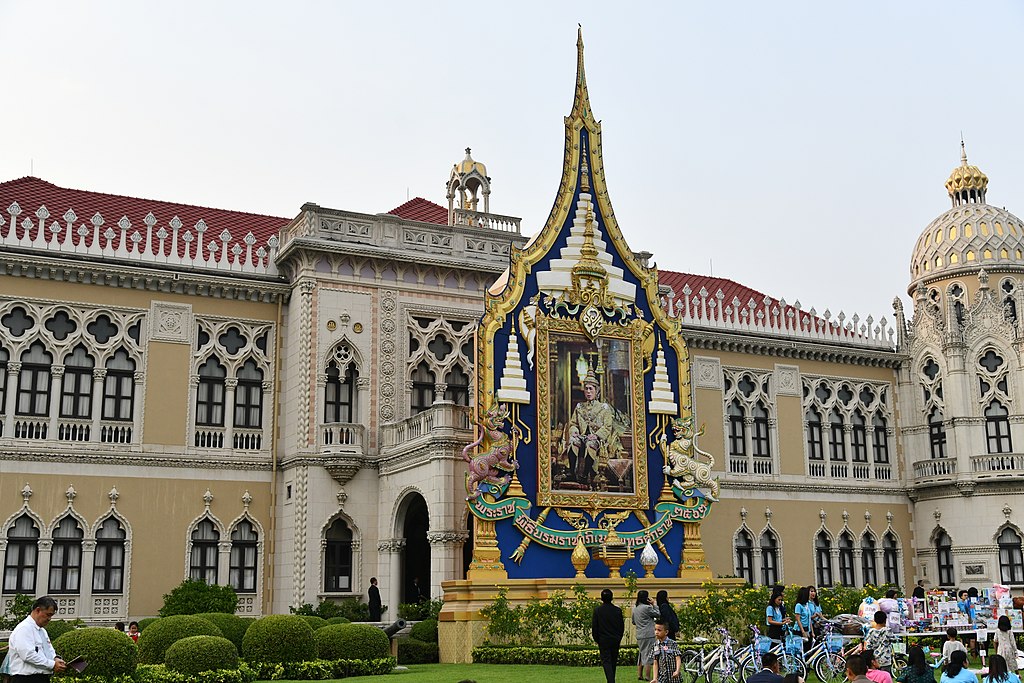
Overall
It appears that Prime Minister Srettha is diligently working towards realizing economic improvements. The Pheu Thai party, in collaboration with conservative parties, has placed a significant wager on the notion that swift economic progress could shift voters’ attention away from pressing issues of social and political reform, a strategy that played a crucial role in a previous election. Pheu Thai’s political survival seems contingent on achieving economic successes, as there is limited expectation among the Thai populace for substantial social or political reforms. The promises of reform in the military, judiciary, or law enforcement sectors have conveniently been overlooked. The prevailing hope rests on the prospect of a better economy, which might prove instrumental in securing electoral victory in 2027.
William J. Jones
Assistant Professor, Mahidol University International College, Thailand
Douglas Lee Rhein
Associate Professor, Mahidol University International College, Thailand
Banner: TH PM Srettha Thavisin met Thai communities in US, New York City, Sept 21, 2023. Wikipedia Commons
